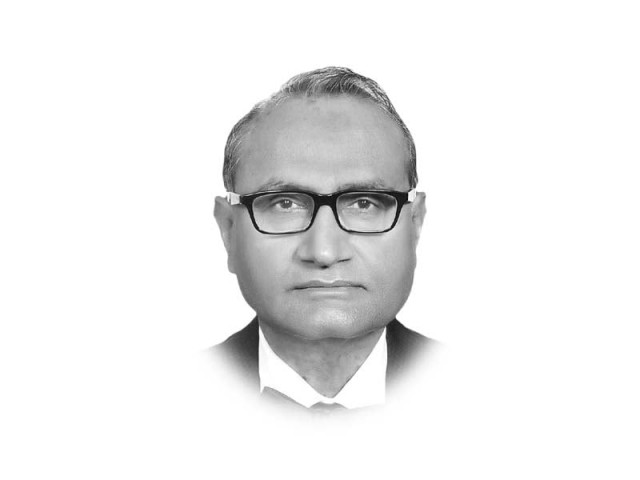From Russia with halal love
Who could have imagined that Russia would be the host of a Hilal Expo?

pervez.tahir@tribune.com.pk
Believe it or not, it was the 9th Kazan Summit, as it has come to be known for short. There might still be a few who would dub the initiative as the dreamland of a Muslim leader in the Russian Federation, President Rustam Minnikhanov of Tatarstan. Let’s not, however, forget that Muslims constitute over 20 million of the total population of Russia. The number is from the 2008 census. With higher fertility rates relative to the other nations of Russia, the next census is likely to show a higher share of Muslim population. This is a significant voice and a huge middle class market. More important, the Kazan Summits have now become the means to further the objectives of President Vladimir Putin’s Strategic Vision “Russia- Islamic World”. The President of Tatarstan is the chair of the group steering this process.
President Minnikhanov has been visiting Muslim countries to work out the contours of the Russia-Islamic World cooperation. He visited Lahore and found in the Punjab chief minister a willing partner. As a result, the Kazan Summit 2017 was attended by a large delegation from the Lahore Chamber of Commerce, Bank of Punjab and the Punjab Halal Food Authority. While the businessmen reached a number of crucial understandings with their counterparts, Justice Khalilur Rehman of the Punjab Halal Food Authority signed a MoU with the government of Tatarstan on the regulatory framework for the halal market. A MoU was also signed between the Bank of Kazan and the Bank of Punjab on promoting Islamic finance.
Next month, the chief minister will be visiting Kazan to strengthen this developing relationship. In early June, a strong contingent from the federal government, including the two energy ministers, will also be in St Petersburg to attend the Economic Forum coinciding with the meeting of the Shanghai Cooperation group. Pakistan is expected to become a full member. With the US withdrawal from the Trans Pacific Partnership, globalisation may be led from the East.
Sitting on the bank of River Kazanka and admiring the Kazan Kremlin, the Kul Sharif Mosque rebuilt in the late 1990s, the Annunciation Church and the local version of the leaning tower of Pisa, the “falling” Suyumbike Tower, I was wondering what on earth was happening. As Bill Clinton famously said, “it’s the economy, stupid!” Halal economy has expanded from food to finance to fashion. The numbers are staggering. From $ 1.9 trillion in 2015, the industry is projected to grow to $3 trillion by 2021. The corresponding numbers for Islamic finance are $2 trillion and $3.5 trillion. Indeed Turkey and Indonesia are working on a megabank project to act as a global central bank for partnership finance, a term found more acceptable than Islamic finance. It is a partial solution to overcome the reluctance of some central banks to allow Islamic banking under their existing statutes.
Some businessmen think that Pakistan’s lingering export gloom can be turned into a boom by finding a niche in the halal market. But some multinationals and countries like Australia and Brazil have already entered. As has happened a number of times in the past, the bus may have been missed. In 1995, I had gone to Moscow to renegotiate the barter trade agreement with the Soviet Union. Our ambassador in Moscow told me that the matter remains unresolved till today. With trade diplomacy like this, who needs a niche anyway?
Published in The Express Tribune, May 23rd, 2017.
Like Opinion & Editorial on Facebook, follow @ETOpEd on Twitter to receive all updates on all our daily pieces.















COMMENTS
Comments are moderated and generally will be posted if they are on-topic and not abusive.
For more information, please see our Comments FAQ